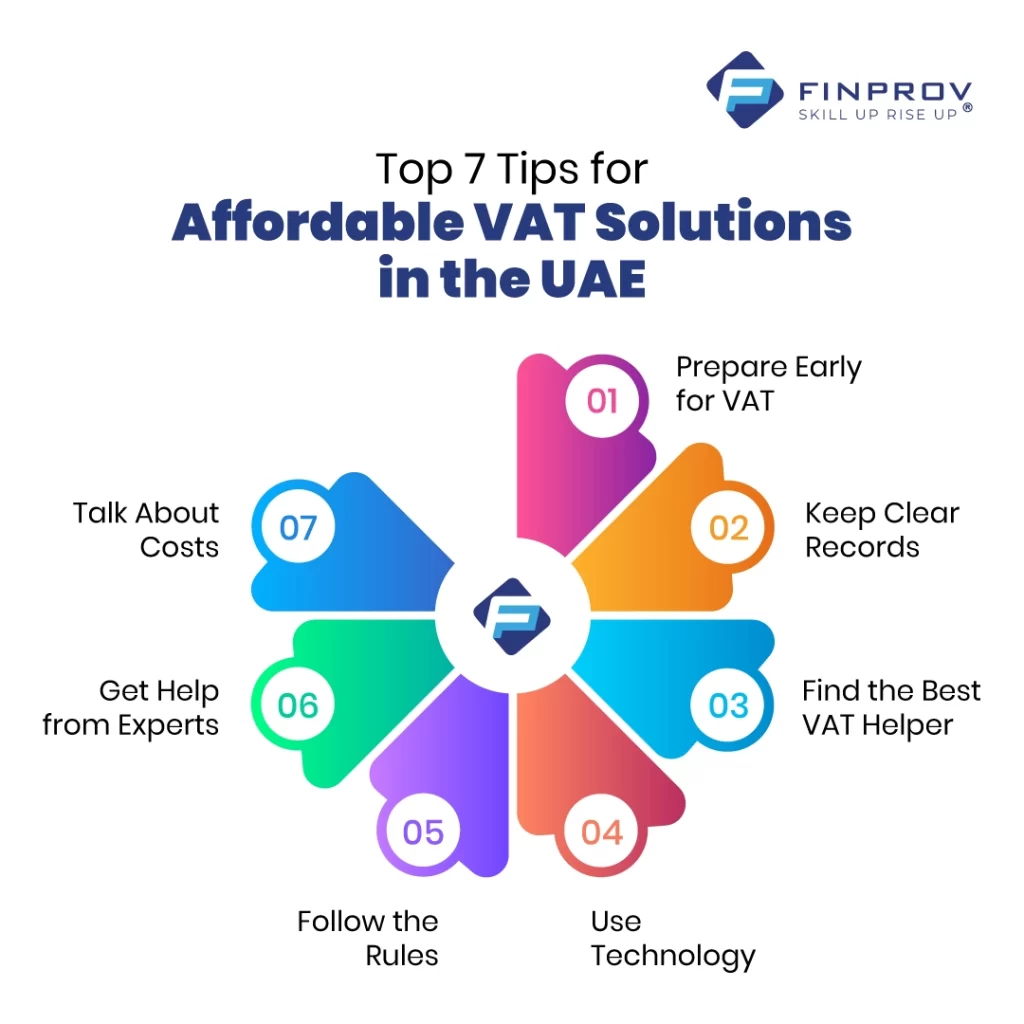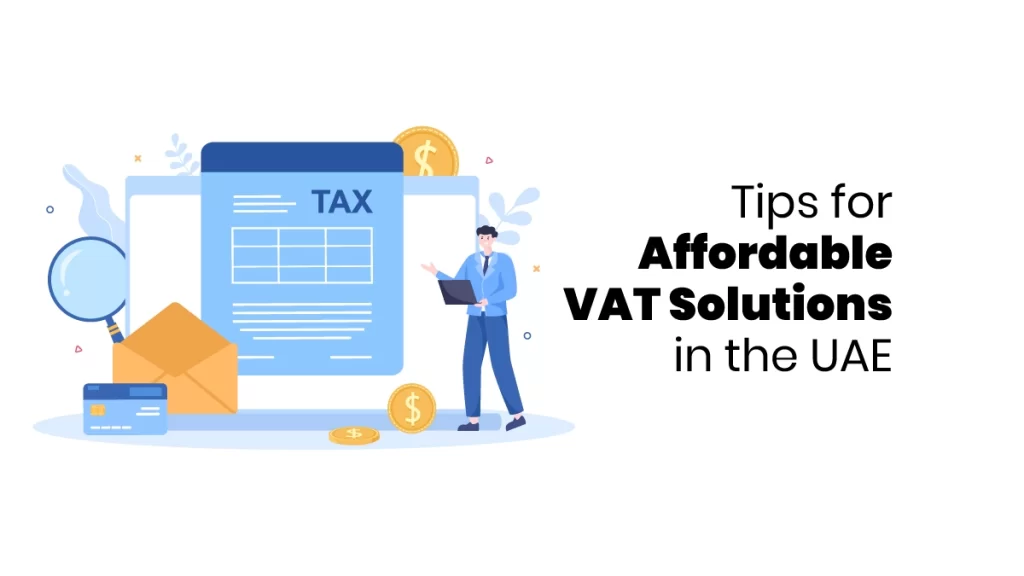In 2018, the UAE started using VAT (Value Added Tax) on goods and services. If a business in the UAE sells enough to meet or pass a certain amount, it must sign up for VAT. But signing up is just the start. Entrepreneurs across the region are increasingly turning to affordable VAT solutions in UAE to guide the complexities of tax compliance with ease and efficiency.
After that, businesses must regularly report how much VAT they’re collecting and paying, let tax experts check their records, and sometimes get advice to ensure they’re doing everything right. The cost of handling VAT can add up, but if businesses plan carefully, they can spend less on these VAT tasks. Let’s read about seven VAT Tips in UAE;
Tip 1: Prepare Early for VAT
To cut down on VAT costs:
- Start preparing for VAT registration early.
- Look at how much you’re selling to determine if it’s above the amount that makes you register for VAT.
- If you’re close to hitting that amount, register for VAT sooner to avoid any fines.
Planning also means catching any breaks or lower rates you’re allowed, which can help you save more on VAT expenses.
Tip 2: Keep Clear Records
Keeping track of what you sell and buy is essential for following VAT rules and spending less on VAT stuff. If you keep precise details of all your business transactions, the VAT experts you hire won’t have to spend as much time and effort on your accounts. This means you could pay them less for their services.

Tip 3: Find the Best VAT Helper
Choosing the right partner for affordable VAT solutions in UAE tasks can help you save a lot of money. Look for a VAT service that can do everything you need, like helping with signing up for VAT, handling your tax details, checking your accounts, and advising you. It’s usually cheaper to get all these services from one place. Also, make sure they offer reasonable prices and let you pay in a way that suits your business budget.
Tip 4: Use Technology
Using technology can help you save money on VAT services. Many companies offer online tools for VAT tasks like signing up, filing returns, and making payments. These tools are easy to use and save you time and effort. Accounting software can also organize your records and generate VAT reports, lowering your VAT service costs.
Tip 5: Follow the Rules
Following VAT rules, spending only a little on VAT services is essential. Follow the rules to avoid fines or legal issues, which are much more expensive. Ensure you understand all the VAT rules and stay updated on any changes. Getting advice from a reliable VAT service can help you stick to the rules and avoid extra costs.
Tip 6: Get Help from Experts
Talking to experts can help you spend less on affordable VAT solutions in UAE services. A good VAT service provider can advise you about VAT rules, discounts, and things you can reduce. This enables you to make intelligent decisions and find ways to pay less for VAT services. Also, expert advice keeps you following the rules and avoiding fines and penalties.
Tip 7: Talk About Costs
Discussing costs with your service provider can save money on VAT services. Many affordable VAT solutions in UAE service providers are open to discussing costs based on your needs and the size of your business. Be clear about your budget and agree on costs that work for you. This way, you can lower your VAT service expenses without losing quality.
Enrolling in a UAE VAT course can significantly boost your career opportunities within the GCC region, offering you practical knowledge on VAT that demystifies the complexities of VAT processes for businesses. Finprov provides online, job-oriented courses that cater to individuals at all career stages, from fresh graduates to experienced professionals.
Our advanced UAE VAT course covers vital areas such as the fundamentals of VAT principles and operations, detailed analysis of VAT registration in UAE, effects of VAT on import and export businesses, comprehensive reviews of invoicing and documentation requirements, a solid understanding of VAT compliance and filing obligations, mastery over accounting entries, effective record-keeping techniques, and awareness of possible penalties.
Acquiring expertise in these areas opens up numerous career avenues, such as positions of VAT Executive, VAT Consultant, Finance Manager, Senior Accountant, Tax Executive, VAT Specialist, Billing Clerk, Sales Accounting Manager, and various administrative roles.










